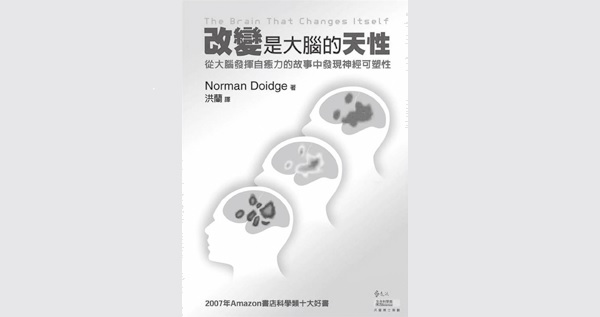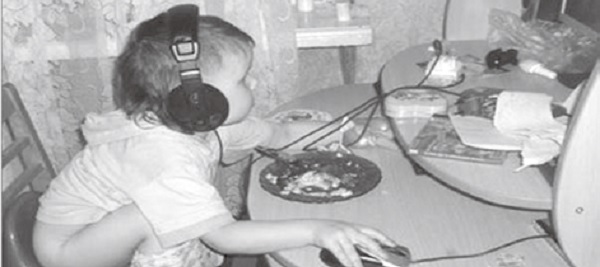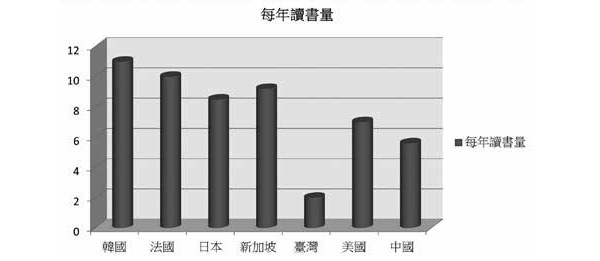Bookworm's Trap Part 2
Picture provided/Ma Ruixin

Discernment online is related to strength offline. And offline strength is closely related to the in-depth thinking and discernment established through the back-and-forth imagination, dialogue, and criticism in the process of reading books...
Editor's note:
In part 1 of the last issue, the author, teacher Ma Ruixin, discussed how the Internet changes human reading methods and habits from the perspective of "curiosity" and "learning methods". Part 2 of this issue will continue to explore the "impact of the Internet on reading" from the four key abilities of learning: memory, concentration, analysis, and integration.

2. Will the increase in reading opportunities brought by the Internet increase or decrease our reading ability?
"Brain neuroplasticity" is the biggest breakthrough in neuroscience in recent years. This revolutionary discovery has overturned the centuries-old belief that the brain cannot change in adulthood. "Change is the Nature of the Brain" written by Dr. Norman Doidge takes us into a wonderful world and discovers that by changing the structure of the brain, the human brain will adapt and change due to appropriate environmental stimulation, resulting in different brain neural circuits. , this kind of brain plasticity leads research to the four key abilities of learning: memory, concentration, analysis, and integration. How should we treat our brains to make these four abilities better and better?
1. Memory
Although there are constantly some online games that claim to enhance memory and concentration, they are so attractive to modern parents that when they put iPads and iPhones in front of babies or children, they will tell themselves that "the children are taking a brain training course." Charles Hulme and Monica Melby-Lervåg published a very careful experiment in 2013, hoping to find out whether these things really help the brain's memory.
The result of the online brain training course experiment is that it does not have much effect on long-term memory. It only has some effect on short-term memory because repeated repetitions form inertia. This will be helpful for those recovering from serious brain injuries, or for those with short-term memory impairment. But for normal people, it has almost no effect. And scientists have found several important effects:1. Too much information can overwhelm short-term memory. 2. The Internet has become the external hardware of the human brain. 3. Too many distractions confuse memory. 4. Too many links lead to getting lost.
Recently, "American Scientist" magazine used "external hardware" to describe the relationship between the Internet and the human brain - external hardware is a place used to store files when the host hardware is not enough. Things placed inside Only when that connecting line exists does it belong to the computer. The result of using too much information on the Internet is that you think you remember a lot, but in fact, most of the things you remember are just "it's on Google."
Someone did an experiment and asked a group of students to read an easy-to-read best-selling novel, and then turned the novel into an online hypertext, so that another group of students had to read one paragraph, click on it, and then go to the next paragraph to read. After reading, the two groups were asked to take a test and found that those who read the novel could remember the content of 80%, while those who read the hypertext only remembered sporadic fragments. Many students said they did not know what the story was about and only remembered sporadic plots or characters. .
2. Concentration
The anxiety caused by being in a high-tech working environment is called "Technostress". This "technology anxiety" is rooted in the multi-tasking nature of the Internet. For example, when surfing the Internet, several web pages are open at the same time. At the same time, the file processing folder may be open to process files, or music may be turned on to listen to music, and at the same time, the accounting software may be opened for accounting. The multi-tasking nature of computers and the Internet has made our brains accustomed to "multitasking". On the surface, it seems that we are becoming more and more capable and our brains are getting better.

▲"Technostress"!
In a study by Clifford Nass, professor of communication at Stanford University, he conducted a subgroup survey between people who multitasked for a long time and people who rarely multitasked. The difference between the two was very significant.People who multitask for a long time cannot clearly filter out irrelevant information, have poor memory of work, and lack concentration.These multitaskers engage many parts of their brains at once, causing them to focus on the task at hand, and they begin to suffer mental stress when distractions make things worse.

▲The emergence of the Internet has broadened and lengthened the path of reading.
Long-term exposure to such conditions not only affects the time we use the Internet, but also permanently changes the brain, making us less able to focus during other activities! Many elementary school teachers always suspect that the students in their classes have ADHD or ADD. University professors are complaining that it has become very difficult for their students to read a book from beginning to end. Even students in the literature department are complaining. There are problems in this regard. It’s not that ADHD and ADD (Attention Deficit Disorder) are sequelae of the Internet, but that the Internet has caused too many children with similar attention disorders. In fact, as long as some adjustments are made, they will improve.
3. Integration ability
Dr. Howard Gardner, who has influenced one of the most profound ideas in contemporary education, has written a book in recent years, "Five Minds for the Future", in which one of the key abilities , which is the "integration power".
"Integration ability" is the ability to gather insights from different fields, integrate them into one's own ideas, and communicate this new idea to others in a timely manner. The Internet gives us the opportunity to collect knowledge and insights from different fields, but leaves us with the responsibility of integrating them into useful content.
People who are accustomed to the Internet can easily get used to too much fragmented information and lose the ability to "see the big picture." Have you found that when you want to share some knowledge that you have read or learned from the Internet, you feel that it is not clear?
One of the reasons is that we don’t tend to integrate things we read on the Internet, but good books have clear themes. No matter how far the author’s thinking and information extend outwards, they will be integrated and summarized back to the theme.So when we read good books, we are actually also undergoing a process of integration.
4.Analytical ability
"Analytical ability" includes knowing how to discern, criticize, filter, organize, absorb valuable content, and discard useless content.
Does using more Internet make people’s critical thinking skills increase or decrease? This issue has been debated between two extremes. According to MRI brain scan tests by a group of scientists at the University of California (UCLA), the brain that surfs the Internet receives different stimulation than the brain that reads.
The brain that surfs the Internet does have more activity in the areas of decision-making and critical thinking than the brain that reads. This is obvious because online reading usually involves one link following another. Almost every second, we are deciding whether to click on the next web page. At the same time, because the quality of things on the Internet is uneven, people who often use it do not really trust the information provided there. The so-called everyone Being an expert means that there are no experts in the world. Therefore, people who are accustomed to surfing the Internet are unconsciously criticizing what is treasure and what is garbage.
But another group of scientists is not so optimistic about this picture. They emphasize that the result of this massive stimulation of decision-making and critical thinking nerve parts is that people can only make superficial, quick decisions and superficial criticisms, rather than comprehensive decisions, and deep critical thinking.
The aforementioned Clifford Nass conducted a test at Stanford University. He found some Internet experts and showed from their brains that when these people go online, they divide information into two completely opposite categories. Stored in short-term memory: useful information and completely useless information. He believes that these network experts can even immediately filter out the information they need and eliminate useless information to prevent their memory from being "overloaded".
Why can someone divide a large pile of information into two piles of useful and useless information in the shortest possible time? Neuroscientists are very interested in studying this question, because if there is an answer, people can be trained to develop such abilities and reduce the chance of being buried alive by Internet garbage.
I'm not a neuroscientist, but I have a simple experience to share. I have believed in the Lord and read the Bible for many years. When I was discussing a certain passage in the Bible with a sister who had only believed in the Lord for a month and had not yet finished reading the Bible, we wanted to know more about it, so we decided to Google it to look up the information. . Immediately, I got at least dozens of explanations of that section of the Bible from the Internet. For me, I knew from the first line of some pages that they were useless or nonsense, and I didn’t even click on the links. But for that sister, she may have read more than a dozen chapters and entered many links, but the more she read, the more confused she became. what is the reason? It’s not that I’m smarter, but I’m more familiar with the entire faith, and I’m more familiar with the entire Bible than that sister.
Discernment online is related to strength offline. The offline strength is closely related to the in-depth thinking ability established through the back-and-forth imagination, dialogue, and criticism in the process of reading books.
Third, after the Internet has changed life in this era, how has it updated our relationship with words?
1. Be willing to share
Before the opening of the Internet, the boundary between readers and authors was very clear. Authors were usually people who read, but most of the readers were not necessarily the authors. When the Internet was opened, the situation changed greatly.
Encyclopedia Britannica has gone through a long period of 244 years, and the paper version officially came to an end in 2012. During its final struggle, Microsoft was optimistic about the electronic encyclopedia market, spent a lot of money, hired experts, and wanted to build an electronic online encyclopedia kingdom instead. However, this dream only lasted eight years.
At the same time, a young man who grew up in a private school (he later educated his children at home) was also nurturing a dream to build an online encyclopedia written by netizens’ free and automatic contributions of knowledge. Microsoft and many experts scoffed at this unprofessional idea. A few years later, the facts tell us that Microsoft's Encarta (professional electronic encyclopedia) bubbled, Wikipedia is now widely used, and even Harvard University issued a statement: It does not mind students writing The report starts with a wiki as the first level of learning.

▲It is always the offline world that dominates the online world.
An organization hired experts to study the difference between non-professional encyclopedias like Wiki and Encyclopedia Britannica. The error was only 2%, which made the editor of Encyclopedia Britannica very angry. He said that Wikipedia is a "public toilet, and you never know who will end up in it." Wiki responded: "At least Wiki is a public toilet that people often go in to clean, which is better than some private toilets that are not cleaned once in ten years!" Indeed, encyclopedias written by experts in the past were not easy to write, especially on paper, and needed to be revised and updated. Disaster.
When Wikipedia wanted to recruit a volunteer writing group, many people thought who would be so boring and join their group of writers for free. Facts have proven that there are currently 30 million people, including professionals and non-professionals, contributing their knowledge, research and enthusiasm to it for free. Founded in 2001, within five years, Wikipedia's content has been seven times that of Encyclopedia Britannica. While many people continue to criticize Wikipedia for its errors and the possibility of being pranked, there are many people around the world who cherish the opportunity that Wikipedia gives them to contribute without expecting anything in return, and even work anonymously to write and correct their own encyclopedias. Complete book to share knowledge with the world. Sociologists understand from the Wiki phenomenon that for the new generation of young people, being able to make meaningful contributions and contributions is more attractive to them than the rewards of money and fame.
When the Encyclopedia Britannica was still "alive", there were only a few people who would read the thick encyclopedias. Unless they were submitting a report for school or for a specific purpose, there were only a few people who read it out of interest. But today's Wiki, elementary and middle school students will read it when they have nothing to do. In addition to the convenience of the Internet, it is also related to its author's "popular writing".
2. Text revival
We have entered an era of "faster writing", which I callera of literary renaissance.
Regardless of whether it is "Mars text" or any other text, although there are also audio, video and image media on the Internet, the most common ones are still text. From myspace to blogs, to Weibo, Facebook, WeChat, and Lazypack, people have a publishing space that does not require submission, talent, or title. And because of the writing habits of these spaces, people can write if they have anything to say. , instead of having something to say before.
There has never been a generation with more "writers" than this generation. In fact, an old publisher in Taiwan said that now not only is everyone a writer, but everyone is also a publishing house. They write their own books, run their own publishing venues, and publish their own books. Find readers. Will the renaissance of writing also bring about a renaissance of reading?
When red wine tasting was not yet common, the difference in choice was whether there was red wine or not? To drink or not to drink? But when the news spread that "a small glass at night is good for the heart" and tasting red wine became very common, not only did more people make and sell red wine, people also began to study the grades of red wine.

I believe that the renaissance of writing brought about by the Internet will make the levels of reading more clear. What is quick browsing? What is reading for gathering information? What is reading that requires slow chewing and reflection? Hierarchies will become more and more apparent, as reading and writing are no longer just for certain people. Therefore, in the era of literary revival, book reading will reach a turning point, and people must look at it again and recognize the value and significance of its existence.
Book reading will move from the level of simply learning knowledge to become a deep taste of thoughts, emotions, and life.When online reading becomes more and more like a tool, book reading will be upgraded to a quality life choice. When people move from extensive speed reading on the Internet to deep and slow reading in books, they will know that what they desire is not just a pile of Knowledge is poured into the brain, but I want to gain a kind of life cultivation that is gradually lost in online life.

▲When the Internet becomes more and more like a tool, book reading will become a choice for quality life.
The power and posture of reading
There is a book "The Power of Quietness" in which author Susan Cain provides evidence one by one that many quiet people from ancient times to the present have exerted great power and changed the entire world because they know how to make good use of their strengths. However, "quietness" is not only an innate character, but also a life attitude that is acquired through training. The power of silence is often the power of reading. Anyone who has a little knowledge of celebrity biographies will find thatSuccessful people are usually not because they rush fast, but because they can calm down at the most critical moments and do deep thinking and introspection. This is what I cherish most about reading books.
Reading can also cultivate a posture of life, which is passivity. According to the analysis of social psychologists, Internet aborigines born in the 1990s especially like the control they have when running on the Internet. They can decide for themselves what information they want to read, what kind of information they do not want to read, and how they want to interpret it. information. This kind of control makes them falsely believe that they are the center of the universe and have the ability to make the world revolve around them. It seems that this makes them more confident, but they soon discover in real life outside the Internet that they are not. Domination, and this kind of realistic setback will make more young people want to become more addicted to the Internet, and even regard it as reality.
Dr. Tim Elmore is a leadership expert specializing in the iYGeneration. He has been to many famous universities in the United States, including Stanford and Duke, to give lectures and cooperate with leaders in training. . When it comes to the generation that has grown up on the Internet, it will produce many young people who are "arrogant and have low self-esteem". They jump in the workplace by jumping on the Internet and seeking excitement. According to Forbes magazine, the average person stays in the same job for less than three years, and a person will change at least 20 to 23 jobs in his lifetime.
The biggest difference between reading a book and actively searching for food on the Internet is that in the process of reading a book, the reader usually has to accept the author's explanation, just like getting along with a person. It takes time to understand his strengths and weaknesses and experience him. emotional ups and downs.Reading a book certainly requires critical thinking and judgment, but before that happens, you must listen passively and patiently and let the author take you into his world to observe.
Online reading often requires immediate responses, but book reading allows us to truly learn how to respond. Because there are more reading options on the Internet, people have begun to understand that when they choose to read, they not only choose the content of the book, but also choose what kind of person they become and what kind of life they want to live. Reading books will become a kind of life cultivation and life cultivation.
Summarize
The Internet is a virtual world. A well-known cultural figure in Taiwan, Mr. Zhan Hongzhi, publisher of PC Home Publishing Group, said: "The online environment is a mirror image of the real world. Whatever is available offline may be available online." We can say, When everyone is attracted by the richness of the Internet, please don't forget that the reason why these wonderful things exist online is because their entities already exist offline. In other words, the offline world will always dominate the online world.

▲"The network environment is a mirror image of the real world. Whatever is available offline may be available online."─Zhan Hongzhi
The same goes for reading. Online reading mostly provides us with opportunities for window shopping. What is popular now? Or what is worth buying? Is it easy to use? But when you see something good, or even try it on, if you don’t spend money to buy it back physically, you don’t really own that piece of clothing, and you won’t truly appreciate the beauty that that piece of clothing adds to you.
All kinds of information on the Internet tell us what is good, what is brilliant, what is worth learning, but looking at food through a glass window will satisfy us, but we will not make us full.The richness inside the mirror definitely depends on the richness of the entity outside the mirror. Similarly, the reason why the online world is wonderful is definitely because there are people offline who live well, think well, create well, read well, and experience it deeply. life.

▲Who? Read a book deeply, think about a book, and seriously verify and experience that book in your life.
Facing ourselves and the next generation, what we have to ask is not how many people like to live in front of the mirror, or how many people like to go window shopping every day; but to help them become elites outside the Internet. Looking around, among the few people who spend time outside the Internet to read a book in depth, think about a book, and seriously verify and experience that book in their lives, are you and me? Is there a next generation for you and me?

Author profile
Ma Ruixin is a writer. Her articles have appeared in newspapers and magazines. She was a columnist for "Cosmic Light Magazine" and "True Love Magazine" and is currently a writer for "Beijing Foundation Magazine". At the same time, I have been running an online blog for many years and have a Facebook page. He is the author of the books "The Footsteps of a Wanderer", "Managing the Family and Mind", and "The Wisdom of Discipline". "Private School Madam" blog, "Give me your sincerity" blog, "It's You" blog, and "Grab Happiness" Facebook page.
